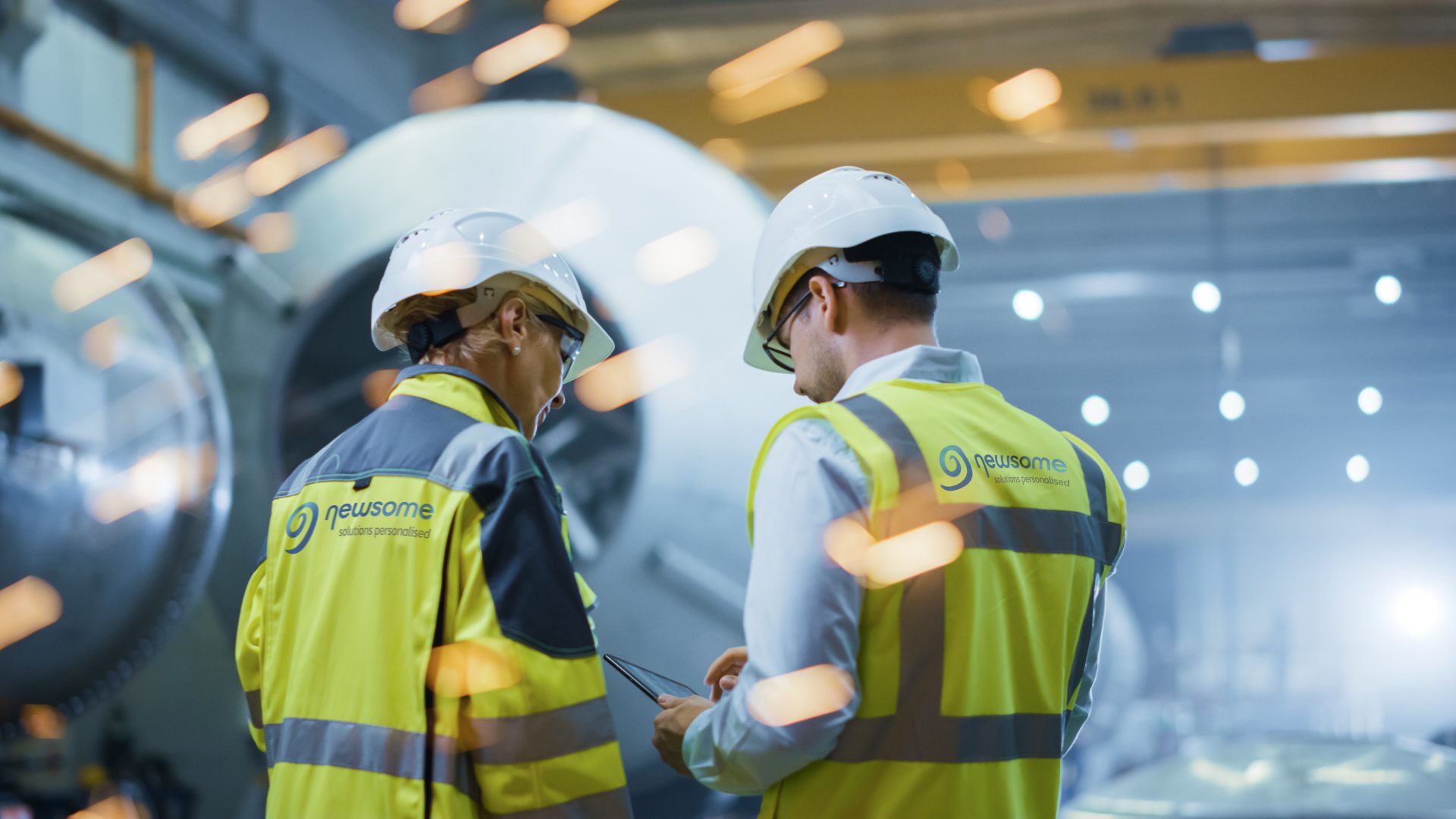There are two well-known industrial chillers – water-cooled chillers and air-cooled chillers. They share similarities in how they cool industrial fluids, but what sets them apart is how the systems emit the heat which is extracted.
They also share the same essential foundations and components including the compressor, evaporator, condenser and expansion valve. Each system offers its own advantages – this guide will help you decide which one is best suited to your business needs.
How does an air-cooled chiller work?
The Process
Air cooled chillers work by removing energy / heat from HVAC & manufacturing processes. This heat transfer is achieved using three methods:
- Process to water via heat exchange
- Water to Refrigerant via the evaporator
- Refrigerant to Air via the air-cooled condenser
Installation
Installation is quick & easy, as the unit comes as a package rather than in separate entities.
What are the advantages?
They predominantly come in quick-to-install, packed systems. The system, including the components are set up for the best possible performance, as a result they’re known for their reliability and time-saving installation process. They are known to have energy-efficient features such as EC fans, which reduce energy consumption & electronic expansion valves.
The units are installed outdoors as they do not require secondary condenser connections. This makes them a convenient choice for those concerned about saving space indoors. Additionally, they come in a wide range of sizes making them adaptable to many spaces and business needs.
How does a water-cooler chiller work?
The Process
- A water–cooled chiller operates in the same manner as an air-cooled chiller, although the condenser provision is via a refrigerant to water condenser rather refrigerant to air solution as found in an air-cooled system. As such the units tend to be installed internally & would require a secondary connection to a suitable fluid source such as a cooling tower or adiabatic cooler.
Maintenance
- It needs continued mechanical maintenance, including water treatment. This will help prevent a risk of contamination through ongoing cleaning of the equipment. It is the additional feature of the cooling towers or adiabatic coolers, which leads to greater installation times & maintenance time.
What are the advantages?
Water-cooled units stay indoors, making them the choice for those who do not have an abundance of outdoor space. They transfer heat efficiently with support from the cooling towers and this can help businesses save on energy costs. The use of water as a refrigerant makes it safer for those who have direct contact when repairing the unit. As it is a closed system, the external environment cannot impact the temperature. This means the system is subject to a reduced amount of contamination, with a lesser need for repairs/maintenance.
What are the significant differences between air-cooled and water-cooled chillers?
Installation matters to consider
- Air-cooled chillers include condensers that use the air to cool the heated refrigerant down.
- Water-cooled systems only use water to cool the refrigerant within the condenser. The cooling water also does not come into immediate contact with the refrigerant to achieve effective heat transfer, as the two components flow in individual ducts within the heat exchanger.
- The unpredictable factor of an air-cooled option being placed outside will compromise the system primarily depending on the weather, especially in excessive hotter temperatures. Consideration of space must be prepared prior to installing an air-cooled unit as it needs enough air surrounding it to operate effectively.
- In comparison, as the water-cooled chiller’s cooling tower can be installed outdoors, it can handle minimal ventilation. Spikes in temperature will not deter it from performing to the best of its capabilities.
- Water-cooled chillers tend to be popular in commercial HVAC applications were space & noise emissions have a significant influence.
- Air–cooled chillers tend to be installed in industrial applications were space isn’t a significant factor in product selection & external locations space isn’t an issue.
Noise differences
- An air-cooled system creates greater noise due to the constant flow of air by expanding and contracting through the condenser.
- A water-cooled system is a quieter option as it can be located indoors, reducing the potential issue of noise disruption.
- If you are near locations including schools, hospitals and residences, constant noise disruption could lead to potential complaints.
Environmental factors
- It is important to consider the regulations within the area of installation of both systems.
- An air-cooled chiller does not emit any waste materials, as the heat which is rejected disperses into the air.
- Water-cooled systems are open-looped and require extra time and maintenance when cleaning.
Water Supply
- Depending on the availability of a water supply within your location, a water-cooled unit is a good option, however this will ultimately increase water utility bills.
- Cooling towers evaporate water, meaning a large supply of water will be needed to replace the level of water which has evaporated.
Lifespan
- Both options have long lifespans.
- Air-cooled chillers last around 15 to 20 years, in HVAC applications.
- Water-cooled chillers have an estimated lifespan of 20 years, in HVAC applications.
Which suitable chiller option should I hire for my business?
Air-cooled chillers are recommended due to their ease of installation, but will need ventilation to the outside air. They are preferable for businesses within urban locations and less indoor space.
However, if there is no concern regarding water supply within the location, a water-cooled chiller may be the suitable choice to hire for those who need continued operation. They do not require ventilation to work and there is less maintenance in the long-term.
When deciding which kind of chiller unit to hire, weigh up key factors such as size, cost-effectiveness and the appropriate cooling capacity suitable to your location.
How Newsome can help
To determine the chiller most suitable for your business, feel free to give us a call on 01422 371711 or for further information and support, please contact us.

